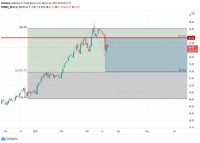|
Allocating to private equity has been a target rich issue for critics of the industry lately. First the Securities and Exchange Commission (SEC) dropped the fees bombshell this summer, citing issues with fee structures at more than half of private equity firms. Then, rolling pension fund scandals from CalPERs, to North Carolina, through New Jersey, and up to Rhode Island painted an unfortunate picture of the industry. Still, asset flows into private equity are going gangbusters, valuations are rising and M&A activity is white hot. So it appears investors aren’t all that concerned. Now, a new report from Invesco shows that sovereign wealth funds are going all-in on private equity. The Invesco data suggests that sovereigns see allocations to private equity and other alternative asset classes as strategic, rather than tactical allocations that can serve as a bulwark against weak developed markets and shaky global equities. Nearly all of the SWFs in the recent survey say that they plan to increase their allocations to alternatives this year. “This year we observed similar demand for alternatives in 2013, with 51% increasing new exposure to real estate relative to the portfolio and 29% increasing new exposure to private equity relative to the portfolio on a net respondent view basis. Furthermore, all of the major alternative asset classes (real estate, private equity, infrastructure, hedge funds and commodities) were projected to increase on a net respondent view basis when sovereigns compared their forecasted asset placements for 2014 with their 2013 actuals,” the report says. Infrastructure investments are likely to be big winners as well with allocations rising from an already high 44% to 53% over the next year. SWFs are typically big players in infrastructure investing given their mandates to provide long term value for the state, however, allocations to infrastructure only account for just over 20% of the portfolio in 2012. So, these increases are notable. Another piece of this puzzle is the shifting view of risk within SWFs. Investment officials at a number of the biggest SWFs are taking a less conservative view of risk, and are willing to consider bigger investments in asset classes like private equity in order to meet portfolio objectives. A similar secular trend can also be observed in pension funds, another group of long-term investors that are facing similar issues of deploying capital for the best return profile. Report data further shows that sovereigns are going beyond their home-market when looking for alternative investments. Historically, SWFs have kept to their own markets when it comes to investing even in vanilla areas like equities. But, as the global economy becomes more interconnected and state interests extend far beyond borders, the home-court bias is eroding. “Respondents increasing new assets in emerging markets in 2013 typically referenced a decrease in home-market allocations rather than developed markets. On a net respondent view basis 11% of sovereigns reduced allocations to their home-market in 2013. This trend is important because home-market allocations account for a significant percentage of the total portfolio (42% on average across all sovereign investors in 2013). It suggests that sovereign investors could continue to increase exposure to both emerging and developed markets at the same time if home-market allocations continue to decrease,” report authors write. Ultimately, these trends reflect a broader conversation happening at SWFs, pensions and the world’s largest investors - the short term gains in global equities may be great, so too recent realizations in private equity, but the longer term picture is harder to figure out. Investments in alternatives could well become a more mainstream way forward for long-term investors who are willing to trade liquidity for diversity and security.
| |
|
This article was published in Opalesque's Private Equity Strategies our monthly research update on the global private equity landscape including all sectors and market caps.
|
Private Equity Strategies
Sovereign Wealth Funds Increase Allocations to Private Equity |
|





 RSS
RSS











